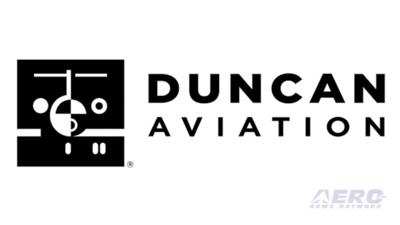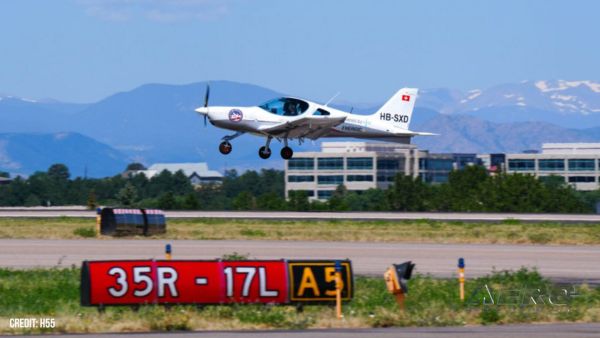Wed, Aug 29, 2018
Based On ICAO Standards As Well As FAA Guidelines
As a company with Part 145 repair station authority for many of its facilities, Duncan Aviation has been working closely with the FAA in the development of a Safety Management System (SMS) for all operations of its Lincoln, Nebraska, location. A Safety Management System refers to a set of formal processes and tools used to manage a structured safety program. Currently, no FAA regulation requires repair stations to have SMS, but the FAA offers a voluntary program that Duncan Aviation has been participating in for several months.

“Safety has always been at the heart of what we do at Duncan Aviation and always will be,” says Tom Burt, Executive VP and Chief Operating Officer at Duncan Aviation’s Battle Creek, Michigan, facility. “A Safety Management System will help us connect all of our safety-related activities so that we can confidently continue delivering safe products while keeping our team members safe in an increasingly complex environment.”
Aviation SMS programs are based on International Civil Aviation Organization (ICAO) standards as well as FAA guidelines in 14 CFR part 5. The SMS processes are organized into five main components: Safety Policy, Risk Management, Assurance, Promotion, and Record-Keeping.
So far, the Duncan Aviation SMS team has completed a gap analysis, which looks at how current Duncan Aviation safety activities line up with 14 CFR part 5. They are now in the process of making minor modifications to some policies, adding a few new processes, clarifying the SMS processes and goals, and conducting training. The third and final step will include FAA design and demonstration audits. Burt anticipates the process will be completed in 2019.
Duncan Aviation’s Flight Department is IS-BAO Stage III accredited, which requires an SMS for that department. In addition, the Lincoln FBO Operations is Stage I accredited by IS-BAH, which also requires an SMS for that area. The FAA SMS in work covers all facets of Duncan Aviation’s Lincoln location.
“Once everything is verified and accepted by the FAA for our operations in Lincoln, we will move on to apply for SMS for our Battle Creek and Provo (Utah) locations as well,” says Mike Brown, Audit Programs/SMS Manager. “In the meantime, we are implementing all the same processes at all of our locations.”
(Source: Duncan Aviation news release)
More News
We're Everywhere... Thanks To You! Even with the vast resources and incredibly far-reaching scope of the Aero-News Network, every now and then a story that should be reported on sl>[...]
From 2015 (YouTube Version): Oshkosh Reveals Many Treasures... Including Old Warbirds Full Of History While at EAA AirVenture 2015, ANN News Editor, Tom Patton, ventured out to vis>[...]
"The aircraft achieved the maximum recorded airspeed of 180 Knots IAS at about 08:08:42 UTC and immediately thereafter, the Engine 1 and Engine 2 fuel cutoff switches transitioned >[...]
Temporary Flight Restriction (TFR) A TFR is a regulatory action issued by the FAA via the U.S. NOTAM System, under the authority of United States Code, Title 49. TFRs are issued wi>[...]
Aero Linx: Aviation Without Borders Aviation Without Borders, a leading humanitarian aviation charity, uses its aviation expertise, contacts and partnerships to enable support for >[...]
 ANN FAQ: How Do I Become A News Spy?
ANN FAQ: How Do I Become A News Spy? Classic Aero-TV: The PB4Y-2 Privateer - A Priceless Aero-Treasure
Classic Aero-TV: The PB4Y-2 Privateer - A Priceless Aero-Treasure Aero-News: Quote of the Day (07.14.25)
Aero-News: Quote of the Day (07.14.25) ANN's Daily Aero-Term (07.14.25): Temporary Flight Restriction (TFR)
ANN's Daily Aero-Term (07.14.25): Temporary Flight Restriction (TFR) ANN's Daily Aero-Linx (07.14.25)
ANN's Daily Aero-Linx (07.14.25)



